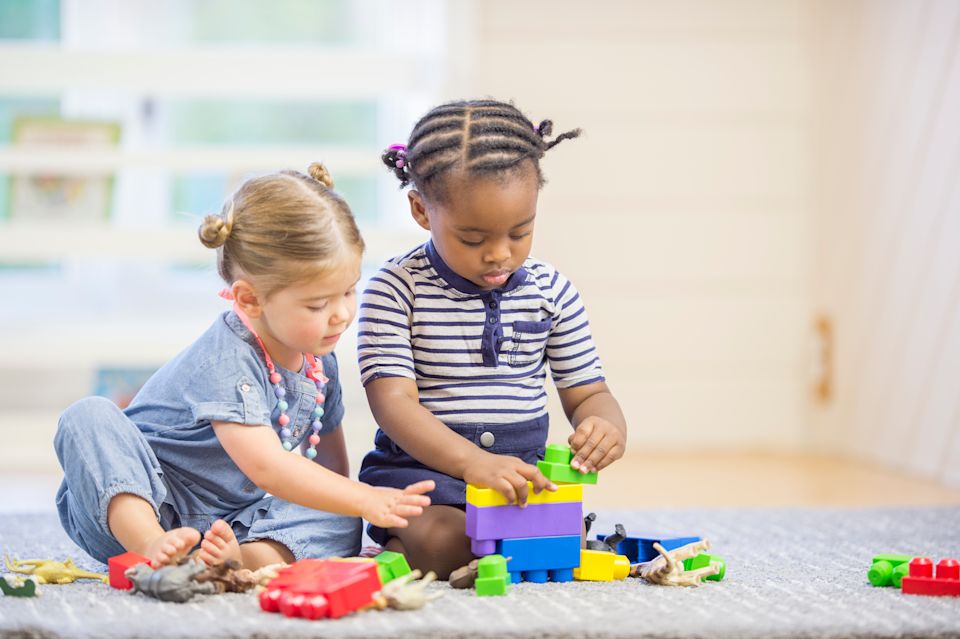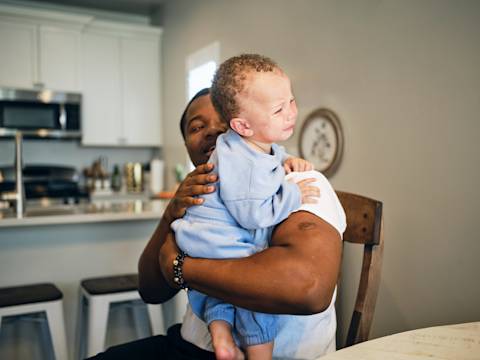Watching your little one make their first friends is such a heartwarming experience. Seeing your child start to build early friendships is a special part of their development. But making friends isn’t always easy, so here’s what to expect in early social development and how you can help along the way.
From the moment they're born, babies start soaking up the world around them, including how to interact with others. As they grow into toddlers and preschoolers, their social skills begin to bloom. By age 3, many kids start to play with others in child care or playgroups, and by age 4, they often know who their friends are. Preschoolers are constantly learning important friendship skills like sharing, taking turns, and cooperating.
And as your child grows, you’ll notice they approach social situations differently. Some kids jump right in, while others can take more time.

Every child has their own social style. Some are naturally outgoing and jump right into group activities, while others might be a bit shy and take their time to warm up. As a parent or caregiver, it's important to notice and respect these differences. Encourage your child to make friends in a way that feels right for them. If your child is more reserved, start with one-on-one playdates with a familiar friend, neighbor, or relative similar in age. Be sure to provide gentle support to help build their confidence in social settings.
Once you understand how your child approaches new situations, you can offer them plenty of chances to connect with other kids in ways that feel safe and fun.
Start small and begin with one-on-one playdates, especially if your child is shy. You can host these at home or meet up at a local park. Offer a variety of activities, like building blocks, arts and crafts, or outdoor games, to let children explore their interests and develop social skills. Activities that require teamwork, such as building a fort or playing cooperative games, can further enhance their ability to work together.
Pretend play is another fantastic way for kids to practice friendship skills. Whether they're playing with dolls, puppets, or toy animals, they can act out scenarios and learn how to be a good friend. You can join in and guide them through any tricky situations, like what to do if a friend doesn't want to play.
Reading books about friendship is another great way to teach empathy and understanding. Characters in stories often face similar challenges and discussing these can help your child relate to their own experiences.
However, building friendships doesn’t only happen with peers.
Family interactions, including chosen family, play a big role in a child's social development. Siblings or cousins can be a child's first friends, providing a safe space to practice social skills like sharing and cooperation. Encourage positive interactions among family members by setting aside time for activities like game nights or outdoor adventures. Involving extended family members, like grandparents, aunts, and uncles, can also offer different perspectives and teach children how to connect with people of various ages and backgrounds.
Children learn a lot by observing how adults interact, so modeling healthy relationships is key. If you have a disagreement with your partner or relative, try to talk it out, and find a solution together. This shows your child that it's normal to have conflicts and that they can be worked out.
Beyond family interactions, children also learn by watching how you build and maintain your own friendships.
The way you show kindness, handle conflicts, and stay connected with others gives children a living example of what it means to be a good friend.
You can stay connected by taking soup to a sick friend or inviting friends over for a chat. And remember to say thank you often, whether it's for a small favor or receiving a kind gesture. This helps kids see how important it is to appreciate others. Lastly, offering help when someone needs it can show empathy and support, teaching your child how to be there for others.
By doing these things every day, you set a great example for your child to follow.
Sometimes, children just need to talk about their day and their friendships. Remember to listen to them. This helps them feel heard and supported, and sometimes, that's all they need.
By encouraging social interaction, modeling friendship skills, and being there to listen, you can help your child form strong, lasting friendships. It's all part of their journey to becoming kind, empathetic individuals. So, let's support them every step of the way!






